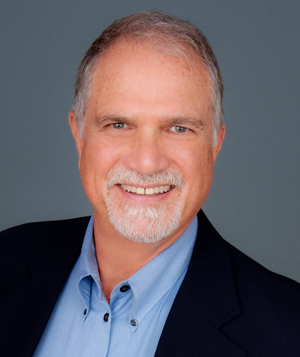Terms for downtown housing project approved
22 October 2021
Terms for downtown housing project approved
The mixed development replaces former LCC site
Megan Banta Eugene Register-Guard USA TODAY NETWORK
There’s some debate over the look of a mixed-housing proposal for the former Lane Community College building downtown, but Eugene officials are excited about the project.
Though they disagree on if the design of the building a developer wants to construct at 1059 Willamette St. is slick or uninspiring, councilors unanimously supported the city moving forward with proposed terms for sale and redevelopment of the property.
Under the proposed terms, the city would sell the property to a team led by deChase Miksis and Edlen & Co. for $1 and provide more than $1 million in financialassistance. The development team has proposed to tear down the former LCC building and invest $35 million to construct a six-story building with firstfloor retail spaces, an art gallery and 129 units. Around half of the units would rent for less than market rate to people who make 80% of the area median income, or $39,900 a year for an individual .
Staff said the project helps the city meet two points of need on a housing continuum and will bring people and activity to an underused site.
“A healthy and vibrant
downtown is key to a strong community, and housing is a critical component of the effort to meet climate recovery goals and to
See HOUSING, Page 9
A

![]()
The Montgomery is a proposed mixed-development housing project with both income-based and market-rate units at Willamette Street and 11th Avenue in downtown Eugene. ROWELL BROKAW/CITY OF EUGENE
Housing
Continued from Page 1
A
create an economically vital and livable downtown,” said Amanda D’Souza, a business development analyst with the city.
City staff and the development team will start putting together a legal agreement and completing due diligence with a closing deadline of no later than Oct. 1, 2023.
If the sale goes through, the developer must have the building ready for occupancy by April 30, 2025.
35-year commitment to affordability
The former LCC building is on the northeast corner of Willamette Street and East 11th Avenue.
The site has been vacant since LCC moved to a new building in 2013, which has meant no activity in a center block in the heart of downtown.
The city bought the building last year using $500,000 of federal community block development grant funding. At the end of the year, officials issued a request for proposals.
That was open for three months and included the incentive of $1.1 million in available subsidies and the requirement that at least 51% of the units be for people making 80% of the area median income or less with income-qualified rent rates lasting for at least 20 years.
Only one developer made a proposal.
The vote on Wednesday agreed to key terms of an agreement to make that proposal a reality, including:
h A sale price of $1
h 66 units being set aside for people making 80% of the area median income and 10 of those being set aside for survivors of domestic violence. As of June 1, 2021, the AMI in Eugene was $39,900 for an individual and $56,950 for a four-person household.
h A 35-year commitment to ensure people living in the 66 income-based units spend no more than a set amount on rent and utilities.
h The transfer of the property being contingent on the developer receiving a Multi-Unit Property Tax Exemption, which allows developer to avoid property taxes on the value of new residential construction for up to 10 years.
h $1.1 million in financial assistance from the city to cover system development charges, building permit and related fees, electric-connection fees, demolition costs and other project-related costs. This was included in the request for proposals.
Plans also call for the project to include pet amenities, low-rent spaces for start-up businesses, a public gallery in the
lobby and an outdoor mural.
The agreement also allows the city to repurchase the property for $1 if the developer doesn’t meet construction and completion requirements.
City using as pilot project
The project has met some criticism from people who argue it’s “likely to accelerate gentrification and homelessness” and urged officials to support development of housing with covenants in favor of communities of color and people who are unhoused, poor and part of the LGBTQ community.
Yet the city needs housing for people across the income spectrum, staff said.
Though some aren’t thrilled about more market-rate housing, it’s important for the downtown area, Councilor Randy Groves said.
“Market-rate housing downtown helps support local businesses,” he said, calling it “part of a healthy economy.”
The development also gives the city a chance to take an “innovative approach” and use the development as a pilot project, D’Souza said “Our hope is if this project is successful, it can become a model that can be replicated both in the type of housing but also in how the city can creatively use financial tools to create more housing beyond our typical affordable housing tools,” she said.
Councilors said they’re interested to see how the experiment works out. There are lots of upsides to the project, Councilor Alan Zelenka said, including it matching what the city asked for in the request for proposals, having units set aside for domestic violence survivors and offering pet amenities, art and retail space. The subsidy level also seems appropriate.
Zelenka isn’t thrilled about the design, though. He called the block building “really uninspiring.”
Councilor Emily Semple agreed the project could use some more beauty in its design.
Yet Councilor Matt Keating was in the architect’s corner, calling the design slick, clean and modern.
As part of the MUPTE process, the council and community will have a chance to weigh in on the project’s appearance, D’Souza said.
“Through that process, we will see more refined designs,” she said.
Contact city government watchdog Megan Banta at mbanta@registerguard.com.
